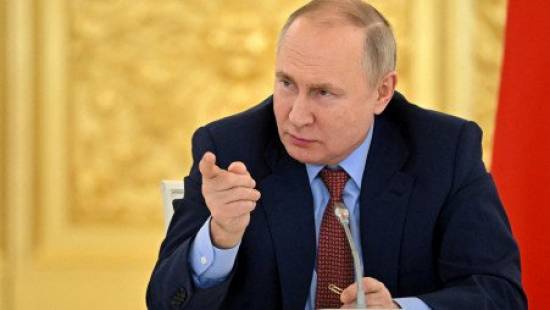Putin promises to bolster Russia’s IT security in face of cyber attacks
On Friday, May 20, Russian President Vladimir Putin stated that the number of cyber attacks by foreign ‘state structures’ on Russia had gone up several times over. Hence, it is essential that Russia bolsters up its cyber defences by lessening the use of foreign software and hardware. Various state owned companies’ websites, along with news websites have experienced periodic hacking attempts. This was since Russia invaded Ukraine on February 24, often to showcase information that is at odds with official line on the conflict of Moscow.
Putin stated these targeted attempts are to try and disable the ‘internet resources of Russia’s critical information infrastructure.’ He said this mentioning that even media and financial institution were a target. Putin pointed out how the official government agencies also witnessed ‘serious attacks’ launching against them.
“Attempts to illegally penetrate the corporate networks of leading Russian companies are much more frequent as well,”
In a meet with the Security Council, the Russian President stated that it is necessary for Russia to improve information security in essential sectors. Along with it, it is essential for them to switch to the use of domestic equipment and technology. He added that restrictions on overseas products, software and IT have emerged as one of the ‘tools of sanctions pressure’ on the country. Additionally, he said that a number of ‘Western suppliers have unilaterally’ halted technical support of their equipment in the country. Moreover, he pointed out the increased frequency of the blockage of cases of programmes following updates.
Data Leaks:
On Wednesday, May 18, Roskomnadzor, the state communications regulator, revealed its blockage of a website that was hosting personal data of the clients of some companies. The regulator did not specify the names of these companies. Media quoted VTB, Russia’s second-largest bank stating that phone numbers of some of the customers had been leaked, though there was no risk to their funds.
Additionally, others such as online marketplace Avito and e-commerce player Wildberries denied reports in Russian media regarding their data being leaked. In early March, a data leak exposed the personal details of over 58,000 people on tech company Yandex’s food delivery app, Yandex.Eda. Its competitor, Delivery Club, apologised to customers on Friday following them suffering a data leak on orders placed by them. According to TASS news agency, the company stated that the leak included data on the orders, which did not impact any bank details. They stated stated how they were doing their best to ‘prevent the dissemination of the data.
Moreover, this month, hacking attempts led to video-hosting site RuTube remaining offline for three days. They even altered television menus in Moscow in Victory Day, when the country celebrated the 77th anniversary of the Soviet Union’s victory over Nazi Germany.
For long, Moscow has been looking to refine its domestic internet infrastructure. Last summer, they even went ahead to disconnect itself from the global internet at the time of tests. But the unprecedented range of sanctions from the West imposed owing to the war in Ukraine has increased pressure on Russia’s IT./Agencies


